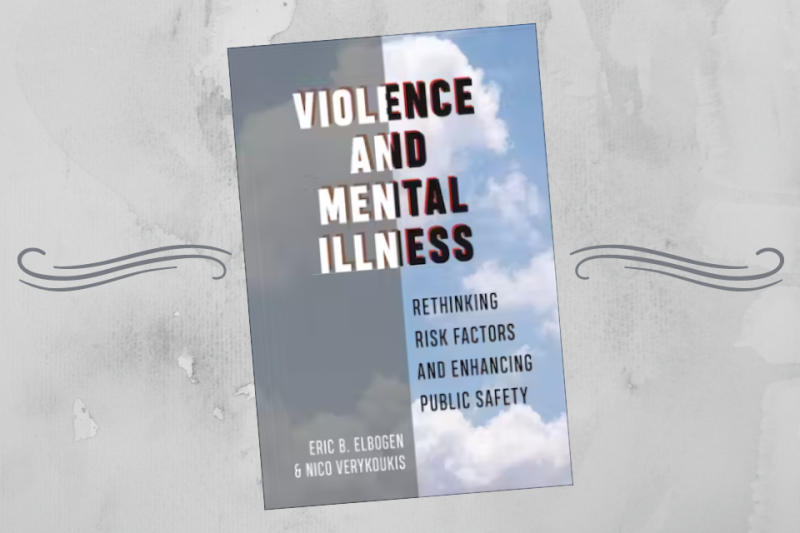
There have been more than 400 mass shootings in the U.S. this year. Turning on the news to yet another story about an unprevented shooting can provoke a different reaction in everyone. But whether grieving or desensitized, people often settle for the simplest explanations and quickly place blame—in the case of shootings—on mental illness.
In Violence and Mental Illness: Rethinking Risk Factors and Enhancing Public Safety, co-authors Eric Elbogen, PhD, professor of psychiatry and behavioral sciences, and Nico Verykoukis, a retired clinical social worker with 29 years of experience, debunk the common myth that most perpetrators of violent crime are mentally ill.
“Usually people pick up one piece, a mental illness piece, and they say that’s the cause of violent acts, and that doesn’t make any sense. That means you’re neglecting all these other pieces of the violence puzzle.”
—Eric Elbogen, PhD
Through meta-analyses, new case studies, and empirical evidence, Elbogen and Verykoukis demonstrate that the causes of violent crime are actually far more complex. In an interview, Elbogen compares risk factors of violence to a jigsaw puzzle. “Usually people pick up one piece, a mental illness piece, and they say that’s the cause of violent acts, and that doesn’t make any sense,” Elbogen said. “That means you’re neglecting all these other pieces of the violence puzzle.”
The book explains that internal risk factors like being young, being male, anger, and substance abuse, as well as external risk factors such as poverty, absent or abusive parents, and an unsafe neighborhood, are also pieces in the puzzle. Other factors that may lead to this type of violence include being part of an organized hate group or gang, having access to weapons, and criminal thinking fueled by online hate communities.
Despite these complexities, people tend to overemphasize mental illness as a risk factor due to cognitive biases and social stigma. Humans are naturally subject to fast thinking and oversimplification.

With mass shootings, people often want to “hand off” the issue to behavioral health specialists and hope future threats are neutralized. Elbogen explains the risks of thinking this way. “They think, well, if this person had been in mental health treatment, they wouldn’t have done it,” Elbogen said. “But that's magical thinking. We don’t have ESP; we can't read a patient's mind. We don’t have a crystal ball; we can't predict it. While the mental health profession can have impact, I think the public often fails to recognize the limits of psychiatry when it comes to stopping violence.”
Throughout the book, the authors express a sense of urgency, warning that overemphasizing mental illness and underemphasizing the numerous other risk factors leads to less effective solutions and wastes time and resources. The book outlines policy recommendations and solutions to move forward.
Elbogen and Verykoukis began working on this book five years ago, and Elbogen’s research started two decades before that. Written in a lay-friendly style, Violence and Mental Illness: Rethinking Risk Factors and Enhancing Public Safety is intended for both academics and the general public.